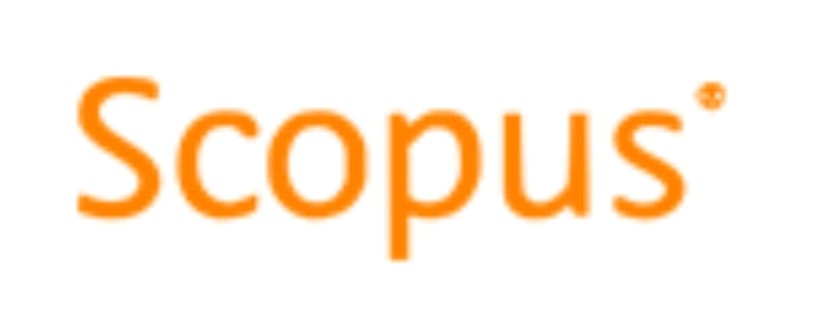
Executive President
Shanti Educational Research Foundation
Agra, India
Dear Esteemed Participants,
It gives me immense pleasure to welcome you to this International Conference hosted by SMAIREC . In an era where collaboration and innovation are the driving forces of progress, this platform stands as a testament to our collective commitment toward knowledge exchange and global development.
Through this conference, we aspire to ignite meaningful discussions, foster lasting partnerships, and inspire new research directions that address the challenges of our times. I applaud the organizing teams for curating such a relevant and forward-thinking agenda.
The hybrid format allows broader participation, ensuring that brilliant minds from across the world can connect, share, and grow together. I encourage each one of you to engage wholeheartedly, explore fresh perspectives, and transform insights into impactful action.
I wish you all a fruitful and inspiring conference experience. Together, let us shape a brighter, more informed future.
Dr. Sanjeev Kumar
Executive President, SMAIREC 2025
John Von Neumann University, Hungary
Czestochowa University of Technology, Poland
Lublin University of Technology, Poland
Assistant Professor, Czestochowa University of Technology, Poland
John Von Neumann University, Hungary
NIMS University, Jaipur
Reviewer Board
Chief Guests:
Prof (Dr) Sanjeev Kumar
Vice Chancellor, MSD University, India
(Executive President, Shanti Educational Research Foundation
and Additional Director, Atmam EduTech Publications)
Guests of Honour:
Prof (Dr) Sanjay Chaudhary
Department 0f of Mathematics
Dr Bhimrao Ambedkar University, Agra, India
Prof (Dr) Haitham Alqahtani,
Vice President of Academic Affairs
University of Technology, Bahrain
Special Guest:
Prof (Dr) Csaba Bálint Illés
Professor, Faculty of Economics and Business, John von
Neumann University, Budapest, Hungary.
Advisor/Mentor:
Prof (Dr) Anna Dunay
Professor, Faculty of Economics and Business, John von
Neumann University, Budapest, Hungary.
Chair:
Prof (Dr) Dorota Jelonek
Czestochowa University of Technology, Czestochowa, Poland
Co-Chair:
Prof (Dr) Dalia Younis
Assistant Professor, College of International Transport and
Logistics, AASTMT University, Egypt
Prof (Dr) Sidney Soares Filho,
University of Fortaleza, Brazil
Prof (Dr) K K Goyal
RBS College Agra, India
Prof (Dr) Manu P Singh
Dr Bhimrao Ambedkar University, Agra, India
Prof (Dr) Ilona Paweloszek
Czestochowa university of Technology, Czestochowa, Poland
Prof (Dr) Leszik Ziora
Czestochowa University of Technology, Czestochowa, Poland
Review Policy: Double Blind
PUBLICATION TERMS
1. Accepted manuscripts will be published in the conference proceedings, provided that the corresponding author has been registered to the conference as per instructions and schedule. The corresponding (registered) author is not necessarily the first author.
2. Accepted papers will be presented either orally or in poster format. Oral presentations will be allocated to the highest-ranking manuscripts.
3. New: The publication fee of 100 € has now been waived. The publication fee was supposed to be charged at the time of full manuscript (full paper or extended abstract) submission, and deduced from the registration fee, in case of acceptance. Corresponding authors of accepted abstracts will not pay any fees at the time of full manuscript submission. In case of acceptance, the corresponding author will have to fully register to the conference for the paper to be presented in the conference and included in the proceedings.PUBLICATION ETHICS
Author's Responsibility :
Authorship of the paper: Authorship should be limited to those who have made a significant contribution to the conception, design, execution, interpretation and presentation of the reported study. All authors should be acknowledged accurately and clearly.
Originality of the paper: The submitted material should be original, prepared to a high scholarly standard and fully referenced using the prescribed referencing system.
Data Quality and Access: All data presented should be acquired in accordance with recognised ethical research practices. Authors should be ready to provide access to their raw data if requested by the Editor.
Fundamental errors in published works: When an author discovers a significant error or inaccuracy in the published work, it is the author’s obligation to promptly notify the Conference editor and cooperate with the editor to retract or correct the paper.
Communication: The author (s) should remain in good communication with the editor if the need arises. All authors should recognize that the Editorial Board of Organizing Institutions has the final decision to publish.
Reviewers’ Responsibilities
Reviewers should :
Only review papers that are relevant to their own expertise.
Read the papers with appropriate care and attention and use their best efforts to be constructively critical.Regard the work being reviewed as confidential and will not discuss it with others and will keep their own identity from authors.
Review submitted work timely.
Report any suspected ethical misconduct that appears in the work.
Avoid any offensive language in their appraisals of the papers.
Treat all papers reviewed fairly without any favour or prejudice.Editors’ Responsibilities
Editors will:Only authorize for publication content of the highest quality.
Ensure that a thorough and objective peer review is conducted for full-paper submissions.
Identify articles that will not be peer-reviewed (i.e. extended abstracts).
Be transparent concerning the review and publication process.
Treat all submissions fairly without any favor or prejudice.
Provide advice to the authors during the submission process when necessary.All the submitted papers will go under a double-blind review process by three reviewers, after successful reports by all three reviewers, papers will be submitted for proceedings by Taylor and Francis. High-quality research papers shall be sent to SCI/SCOPUS-indexed journals.
Conference Tracks for Paper Presentations
Track 1: AI in Smart City Infrastructure
• AI in urban mobility, traffic prediction, and intelligent transport systems
• Smart utilities: energy, water, and waste management
• Urban security and surveillance systems
• Geospatial AI for planning
Special Session: "The AI City: Designing the Urban Future"
Track 2: AI for Public Health & Clinical Sciences
• Disease prediction and personalized healthcare
• AI for medical imaging and diagnostics
• Robotics in surgery and patient care
• Data-driven health policy and hospital management
Special Session: "Transforming Healthcare through AI"
Track 3: Management Science, Strategy & Business Intelligence
• AI in enterprise decision-making
• Business analytics, forecasting, and automation
• AI in supply chain and logistics
• Financial modeling and risk assessment
Special Session: "Smart Enterprises and AI Innovation"
Track 4: Engineering Applications of AI
• Industrial automation and predictive maintenance
• AI in electrical, civil, and mechanical engineering
• AI-enhanced control systems
• Cyber-physical systems and mechatronics
Special Session: "The Intelligent Machine: AI in Core Engineering"
Track 5: Data Science, Machine Learning & Big Data Analytics
• ML models and optimization
• Data visualization and dashboards
• Data lakes and pipelines for smart environments
• Cloud-based AI deployments
Special Session: "Learning from Data: Powering AI Ecosystems"
Track 6: Smart Governance, Policy & AI Ethics
• AI governance frameworks
• Ethical design of public AI systems
• Algorithmic transparency and accountability
• Policy-making for AI-driven governance
Special Session: "AI for the People: Smart Governance and Ethics"
Track 7: Sustainable Development & Environmental Intelligence
• AI in climate monitoring and disaster prediction
• AI-powered energy grids and smart agriculture
• Environmental impact modeling
• AI for clean tech and circular economy
Special Session: "Green Intelligence: AI for a Sustainable World"
Track 8: Medical Technologies & Bioengineering
• AI in prosthetics and wearable devices
• AI for drug development
• Neural interfaces and biomedical robotics
• Healthcare IoT and biosensor systems
Special Session: "Smart Devices in Smart Health"
Track 9: Education, Learning Systems & Human-AI Interaction
• Adaptive learning systems and EdTech platforms
• AI tutors and personalized curriculum development
• Multilingual AI and NLP in education
• Human-centered AI in academia and training
Special Session: "Reinventing Learning with AI"
Track 10: Emerging AI Trends & Future Technology
• Generative AI, quantum computing, and neural computing
• AI in cybersecurity and blockchain
• Low-code AI platforms
• Hybrid intelligence systems
Special Session: "The Next Decade of Intelligence"
Whatsapp only :
Vikalp : +91 98790 34704 , Lakshya : +91 9549731817
Why Visit: Rich history, Moorish architecture, and vibrant culture.

Why Visit: Spectacular gorge views and historic charm.


Why Visit: Beaches, sea views, and magical caves.

